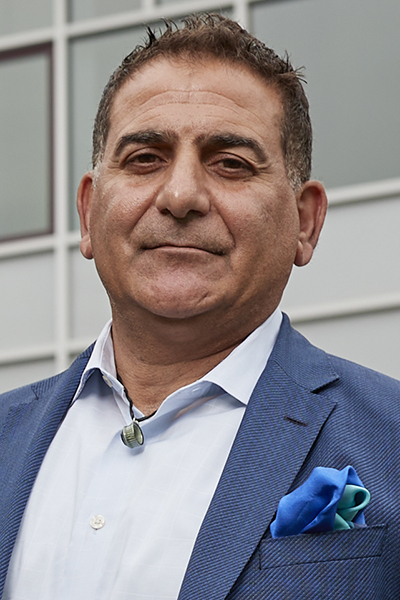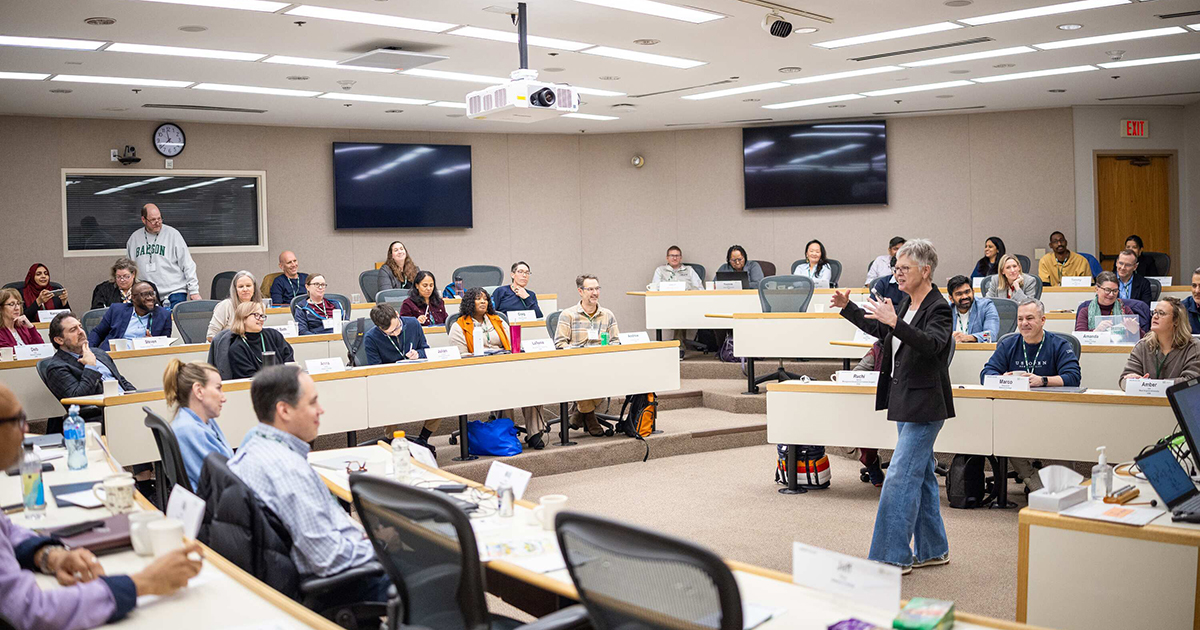3 Common Myths About Franchising That You Need to Stop Believing

Most jobs, tax revenue and wealth come from high-growth companies that start with a great idea and then scale it. And when it comes to scaling, franchising is an increasingly popular option. The International Franchise Association found that American franchises sold more than $825 billion of goods and services in 2022—a number that’s only expected to grow.
Editor’s note: This article first appeared in Entrepreneur magazine.
Together, the two of us have decades of experience working with consumer and franchise brands and teaching it at the Tariq Farid Franchise Institute at Babson College, including as co-hosts of the recently launched Stars of Franchising podcast. We’ve seen firsthand how franchising offers an excellent model for companies looking to expand and scale as well as individuals seeking entrepreneurial opportunities to create economic and social value.
Yet among students, seasoned executives and everyone in between, we frequently encounter myths about franchising—from the perception that franchises run themselves to the view that they don’t offer room for creativity and innovation. Here are three common myths we encounter, plus our advice on why franchising may be right for you.
Myth #1: Franchising can succeed on autopilot
A successful franchise requires many partners. Franchisors who create a brand. Franchisees who work to expand that brand. Bankers and investors who arrange financing.

Franchising can pave the path to growth through an established brand and operational model. Opening a new store is easier when you can learn from a company’s playbook for success. But that doesn’t mean you can sit back and everything will be taken care of. Having a fitness plan that will yield results isn’t the same as actually exercising.
A franchisee who opens a new store must navigate everything from real estate site selection and planning for launch to leadership, labor and supply chain management once it’s up and running.
Pretty much every franchisee and franchisor we speak to says that they needed grit, resilience and an entrepreneurial mindset to succeed.
Soosie Lazenby, who owns and operates four StretchLab franchises in the Tampa Bay Metro Area, told us that “Franchises don’t run themselves. There’s no such thing as a semi-absentee owner.” Similarly, Neal Faulkner, who went from a single Dunkin’ Donuts store 23 years ago to multiple locations and 500 employees today, insists that “Franchisees have to work in the business and be ready to do every single task!”
Franchising is an excellent opportunity—but only if you’re willing to do the work.
Myth #2: Franchising isn’t entrepreneurial
People typically picture entrepreneurship as starting from nothing and bringing an idea to life. But it takes as much creativity to scale something that already exists.

Neal, the Dunkin’ Donuts franchisee, grew up on a farm in Kansas, which he describes as a highly entrepreneurial environment. Franchising offered a similar demand to take ownership of a wide range of tasks and be creative in getting them done. Opening a new Dunkin’ Donuts location looked like opening a business from scratch: Neal had to figure out construction, conduct bank negotiations, manage his employees and more.
The perception that franchising isn’t entrepreneurial partly relies on an image of franchising as a top-down model. However, many franchises are laboratories for experimentation that can then spread to the rest of the brand. The McDonald’s Egg McMuffin, the Dunkin Donuts’ Munchkin and the Planet Fitness Black Card were all products that began at the individual franchisee level.
Franchising can offer the best of both worlds: the chance to be entrepreneurial yourself and to benefit from others’ entrepreneurship. Babson College President and Jiffy Lube International co-founder Stephen Spinelli Jr. shared with us how when one Jiffy Lube franchisee discovered a creative innovation, it could be distributed to all other stores within 48 hours.
Amanda Bialek, an expert in franchise marketing, summarized it best: “Franchising provides the opportunity to tap into entrepreneurial spirit with the guidance of a great playbook.”
Myth #3: Franchises aren’t local and aren’t meant for certain people or types of businesses
Some people view a franchise as an extension of a big corporation. But a lot of the time, franchise brands are run by individuals from the community, your neighbors, who are looking for a path to ownership and entrepreneurship. These locally owned and operated franchisees then create jobs and social impact, generating community benefits.
Similarly, there’s a perception that franchising is a fit for people who have accumulated a substantial amount of capital and are looking for a stable business opportunity. But today’s wave of franchisees is younger, and they come with fresh ideas on staying in touch with new trends.
Edible Arrangements is seeing a trend of young franchise owners who use Internet-driven tools to connect with customers. Franchisors launching a new brand can also be younger. Cousins Jim Tselikis and Sabin Lomac joined together to found Cousins Maine Lobster in their late 20s and early 30s—and secured a 15% equity investment from Barbara Corcoran on Shark Tank.
Just as young people shouldn’t overlook franchising, neither should people interested in businesses outside of the typical restaurant brands such as Panera or McDonald’s that people often think of as franchises. While franchising is an excellent model for the food industry, many other businesses, from gyms to urgent care centers to car dealerships, have found success in the franchise model.
The big message: Franchising is far more local and expansive—in terms of who entrepreneurs are and the types of businesses they operate—than you might expect.
Franchising may be right for you
Franchising provides the opportunity to leverage a proven brand or service to achieve results. It offers the chance to be entrepreneurial. It offers room for growth—multi-unit franchisees now account for most franchise units in the United States. And despite perceptions, many kinds of people and types of businesses can embrace franchising.
Whether franchising is right for you depends on your goals and objectives and the quality of the franchisor. No matter what, success in franchising requires grit, leadership and an entrepreneurial mindset. With those in hand, franchising can offer a resilient path to economic success.
Ab Igram MBA‘96 teaches entrepreneurship and is executive director of the Tariq Farid Franchise Institute at Babson College. Vincent Onyemah is a professor and chair of the Marketing Division at Babson. Together, they co-host the podcast “Stars of Franchising: Stories of Inspiration & Entrepreneurial Grit.”
Posted in Entrepreneurial Leadership, Insights



